Solid state batteries, once considered an unattainable technology, are now standing at the forefront of the times.
Industry insiders point out that once solid-state batteries are commercially available on a large scale, their application
scenarios will be extremely broad. They can be used for "flying" equipment such as low altitude aircraft and drones, as well as
for energy storage, new energy vehicles, electric ships, etc. The market space will grow exponentially.
As a leading domestic AFE chip manufacturer, Datang NXP (DaEnXinyuan) is actively adapting to the perfect application of
solid-state batteries.
01 Solid state batteries

Solid state batteries, once considered an unattainable technology, are now standing at the forefront of the times.
Industry insiders point out that once solid-state batteries are commercially available on a large scale, their application
scenarios will be extremely broad. They can be used for "flying" equipment such as low altitude aircraft and drones, as well as
for energy storage, new energy vehicles, electric ships, etc. The market space will grow exponentially.

Solid state batteries and DNB11xx are the best partners
Datang NXP (Da En Xin Yuan)
The DNB11xx series chips launched
(DNB116x Automotive Electronics)
DNB110x Industrial Energy Storage
As a leader in battery management chips
It is also compatible with solid-state batteries
Make the use of solid-state batteries more perfect!
02 DNB1168 and solid-state battery
As the next generation battery technology, the high-performance potential of solid-state batteries highly relies on the
collaborative optimization of battery management systems (BMS). The characteristics of solid-state batteries also pose
new requirements for BMS:
1,Interface impedance issue
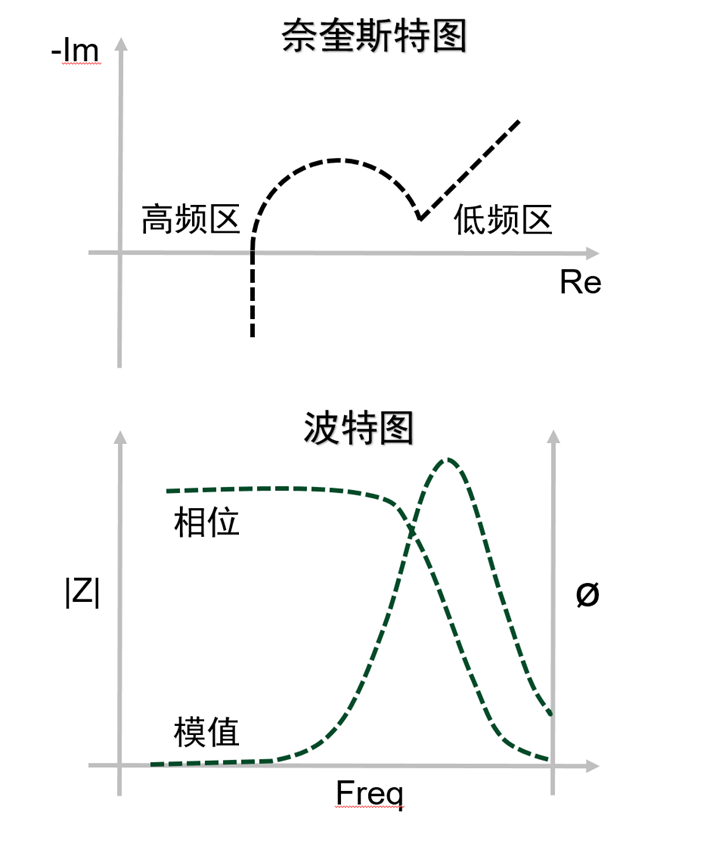
The essence of solid-state batteries is that the electrolyte is replaced with a solid electrolyte, and the solid solid interface
contact will significantly increase the interface impedance, affecting ion transport efficiency and cycle life.
DNB1168 can monitor interface degradation in real-time through impedance changes in the high-frequency and mid low
frequency regions, providing data support for optimizing interface design.
2,Safety and Failure Warning
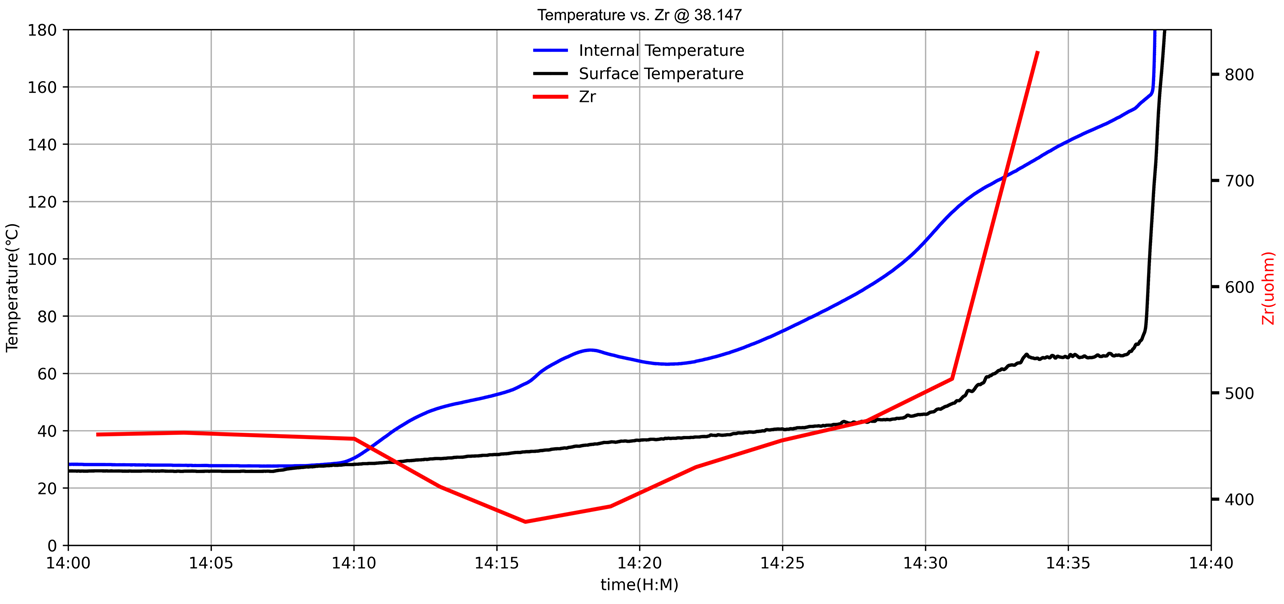
When thermal runaway occurs due to issues such as lithium dendrite growth, the internal temperature and impedance
changes are shown in the graph
Although solid-state batteries are known for their high safety, they may still pose risks due to dendrite penetration or
interface cracks during long-term cycling.
DNB1168 can capture early impedance abnormal signals and assist BMS (Battery Management System) in achieving
fault warning, such as detecting microcracks or lithium dendrite growth at the electrolyte/electrode interface.
3,Life assessment and consistency management
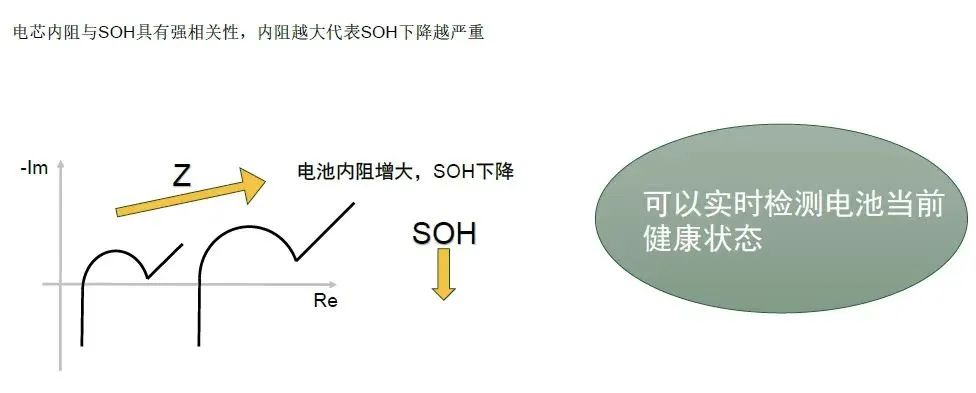
DNB1168 can quantify the decay law of solid-state battery life through multi frequency impedance analysis, thereby identifying the remaining life of solid-state batteries and guiding battery grouping and cascading utilization.
Datang NXP (DN Semiconductor )
The launched battery management chip DNB1168
Can perfectly adapt to solid-state batteries
Breakthrough the bottleneck of
solid-state battery chip collaboration
DNB1168-AFE chip
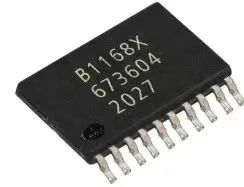
DNB1168 is a globally leading single-cell monitoring chip with integrated (EIS) AC impedance spectroscopy monitoring function.
The chip has passed dual certification of AEC-Q100 automotive grade and ISO 26262:2018 ASIL-D, the highest functional safety level in the automotive industry. The chip integrates multiple high-precision battery parameter monitoring functions internally, supporting voltage, temperature, AC impedance detection, balancing, and various fault diagnosis functions. It can provide hundreds of thousands of dollars worth of battery online "CT" detection technology for batteries, provide a new detection dimension for battery management systems, and achieve health monitoring of the entire life cycle of batteries.
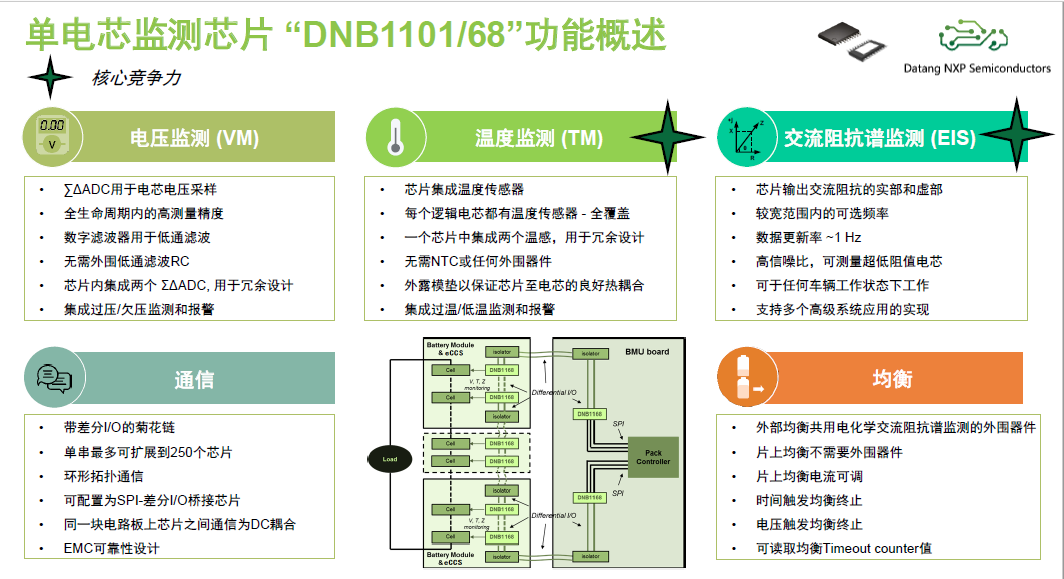
The application of solid-state batteries requires a smarter 'brain' - the DNB1168 battery management chip fully unleashes
the high energy density and safety of solid-state batteries through millisecond level monitoring, balancing algorithms, and
predictive maintenance.
Solid state batteries and battery management chips are like 'best partners'. Chips provide protection for batteries, while batteries
empower chips. Jointly promote the application fields of new energy vehicles, energy storage systems, etc. to enter a new
era of "high safety+long life"